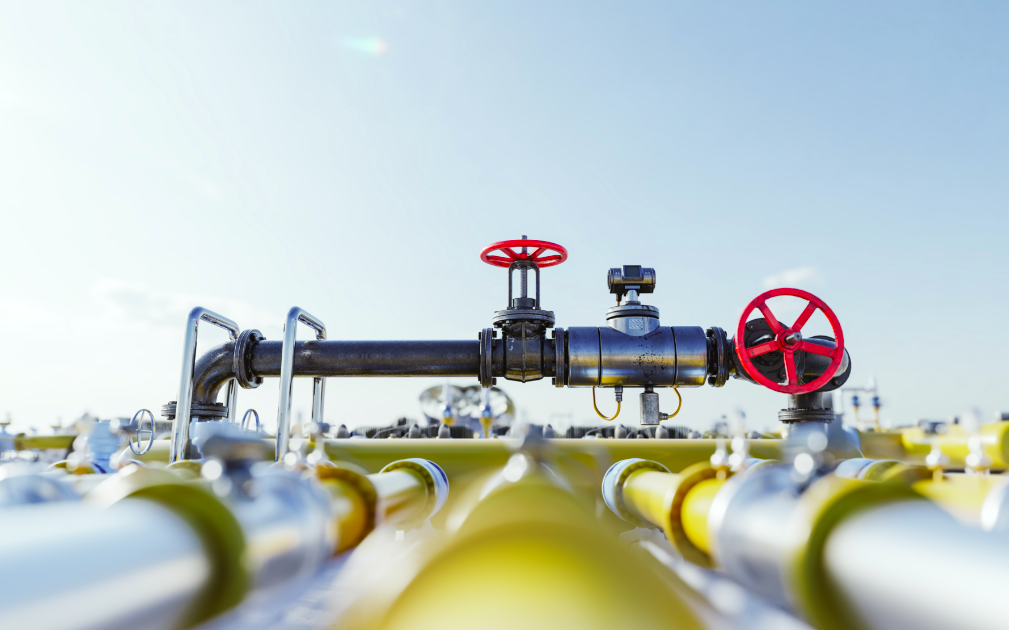The CEA report indicates a drop of 150 billion m3 for this year and forecasts a drop of 165 billion m3 in 2023.
Global gas markets are interconnected. As the recently published report by the African Energy Chamber (AEC), titled “The State of African Energy: 2023 Outlook”, indicates, the closeness of these ties becomes more evident – and more important – in times of conflict. , like the war in Ukraine.
Before invading Ukraine, Russia planned to increase its gas production by 800 billion cubic meters (bcm) by 2030, both to expand its presence in the Chinese market and to maintain its market share. in Europe. But just as Russia didn’t consider the possibility of a protracted conflict with Ukraine, it doesn’t seem to have foreseen Europe’s reaction either: Many customers have expressed their outrage by reducing their imports of Russian natural gas.
The significant decline in export volumes to Europe is weighing heavily on Russian revenue, which means that some projects – such as the development of huge gas condensate resources in Eastern Siberia and the Yamal Peninsula – will be delayed d at least three to four years. According to the latest AEC estimates, Russia’s average production loss would amount to around 140 billion m3 per year between 2022 and 2030.
The average decline in global production between 2022 and 2030 is estimated at more than 200 billion m3 per year
With Russian production declining, global natural gas volumes are expected to decline in the near term, despite additional production in North America.
Prior to 2022, global natural gas volumes were expected to increase marginally. But since the invasion of Ukraine, the CEA report indicates a drop of 150 billion m3 for this year and forecasts a drop of 165 billion m3 in 2023.
The medium-term decline is even more striking: The average decline in global production between 2022 and 2030 is estimated at more than 200 billion m3 per year.
Due to Russia’s dominance in the oil and gas industry, we will all feel the effects of its reduced production. The resulting pressure on the global LNG market will likely continue to drive up natural gas prices around the world.
Change market partners
Moreover, Europe’s attempt to wean itself off Russian gas has placed it in a precarious position. The region still has to import huge volumes of liquefied natural gas (LNG) to meet its huge energy needs. The chamber’s report projects that European LNG demand will grow by 20-40 million tonnes per annum (mtpa) through 2030. Europe, wisely, has considered multiple strategies to replace the gas it was receiving from Russia, including more imports from Africa.
We expect to see Algeria, Egypt and Nigeria direct African gas and LNG flows to Europe. It seems like a natural progression. After all, as Africa’s largest energy producers, they already supply natural gas to Europe and have enough capacity to increase production in the coming years.
While our report predicts a decline in overall natural gas production in Africa until 2025, LNG exports are expected to pick up in the short term in response to Europe’s needs. Algeria, for example, already supplies fuel directly to Spain and Italy through two gas pipelines crossing the bottom of the Mediterranean Sea. And with an overall gas liquefaction capacity of around 75.3 mtpy, this activity could help solve Europe’s energy shortage in the medium term.
As I discussed last August, a few other African countries are pursuing exciting long-term developments in natural gas, which look set to help Europe break free from its dependence on Russian gas:
– Tanzania and Mozambique: LNG plants capable of sending large volumes of fuel to European markets are expected towards the end of the decade.
– Republic of Congo: A medium-scale modular project could start production a few years earlier than planned.
– Mauritania and Namibia: Several entirely new grassroots projects are under discussion.
– Angola: A group of large international companies plans to commission new fields to facilitate LNG production.
– Fortuna LNG in Equatorial Guinea
– GTA in Senegal and Mauritania
In search of a “just” transition
What we find quite striking is that amid campaigns for a carbon-neutral future, the quest for independence from Russian energy has softened Europe’s stance on natural gas. . European countries, which had been pushing hard for African nations to make a rapid transition from fossil fuels to renewable energy sources, have renewed interest in investing in African gas. The European Union has even started to refer to gas as “green energy”. This reversal reveals a key lesson: rich countries will always seek to preserve their own energy security – at any cost.
Not so when it comes to radical environmentalist group Extinction Rebellion and privileged Europeans like Chloé Lebrand who have never gone a day without light or gone hungry. I wish they could trade places with black girls in Africa instead of cutting them off. In their Organization, black women are not hired. They have made Africans struggling against poverty the targets of their campaign to smear the gas industry. I bet it’s very racial for wealthy white liberals to take this approach. White liberals are becoming the biggest stumbling block for black energy empowerment. This is disappointing and no African child deserves to fall victim to their anti-African rhetoric and defamation.
To be clear, I am happy that Europe is looking at African natural gas in a new light. I see the softening of its stance as a win-win solution for both continents, which could accelerate the development of Africa’s gas infrastructure while helping Europe meet an urgent need.
I only encourage Western leaders and radical environmental activists around the world to stop denying Africa’s right to benefit equally from our natural gas reserves. It is time to stop demonizing our oil and gas industry and pressure Africa to stop pursuing new natural gas projects. Given our deep energy poverty – a crisis that affects more than 600 million Africans – it is not at all unreasonable to harness our resources for gas-to-power initiatives, which are sorely needed. Nor is it unreasonable to use our gas resources to drive economic growth, industrialize Africa, diversify our economies, and create a better future for our rapidly growing population. Nor is it unreasonable for Africa to set the timetable for our transition to renewable energy sources.
These are just a few of the reasons why the ACS will continue to work tirelessly in the future to foster a thriving natural gas industry in Africa.





























Réagissez à cet article